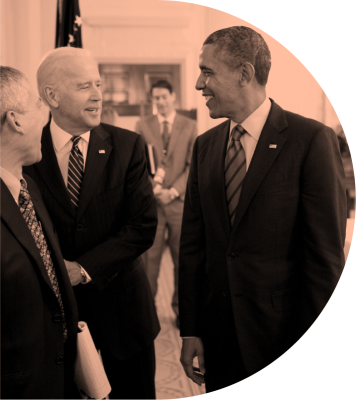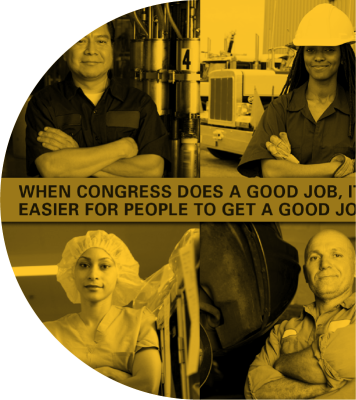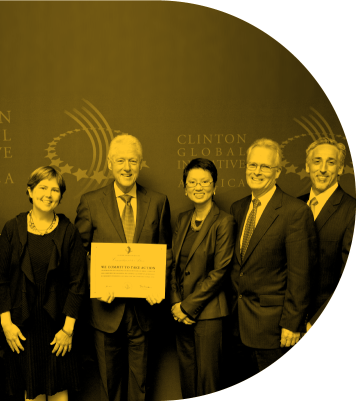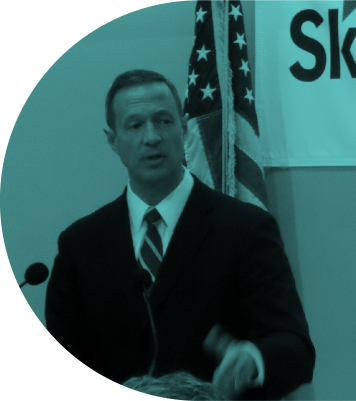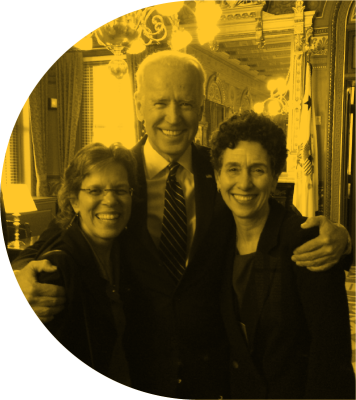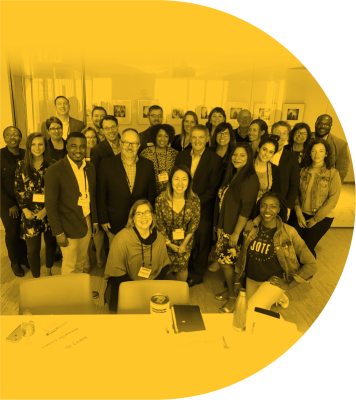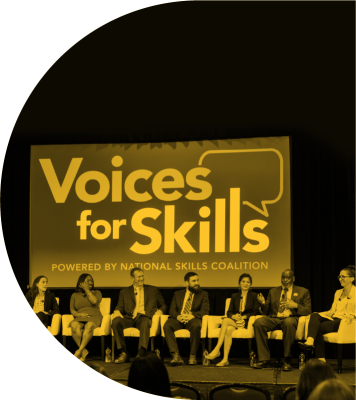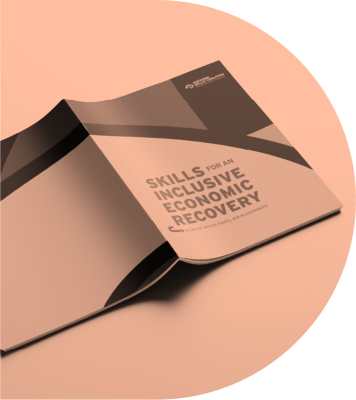At NSC, we work across policy silos because we believe that more people will have
access to a better life, and more local businesses will see sustained growth, if
inclusive skills training is central to workforce, education, and anti-poverty policies.
In our first 20 years, we’ve shaped hundreds of state and federal policies across silos.
Here are just a few.
Crafted higher education policies that work for working people.
We worked with our networks to shape financial aid and student support policies in over a
dozen states. Based on these model state polies, we’ve developed four major pieces of
bi-partisan federal legislation that are poised for adoption in the next reauthorization
of the Higher Education Act.
Defended and shaped billions of dollars in federal workforce investments over the last two decades.
We influenced one of the largest infusions of federal workforce dollars in decades through
the American Recovery and Reinvestment Act of 2009. And in 2018 alone, we led efforts to
defend over $2 billion in workforce and education funding from proposed cuts, saving
services for 600,000 individuals.
Made industry partnerships central to our nation’s workforce investments.
We helped craft the SECTORS Act of 2008 and successfully advocated for its inclusion
in the Workforce Innovation and Opportunity Act of 2014, setting a new framework for
states to formally end train and pray in favor of the locally driven, nationally evaluated
industry partnership model. We helped over a dozen states pass policies in support of industry
partnerships.
Defended and expanded our safety net.
Over the last decade, we helped over a dozen states expand or re-think their SNAP Employment
and Training programs to better support transitions to good paying jobs. Working with national
partners and networks, we led a successful effort to shape a bipartisan SNAP reauthorization
in the 2018 Farm Bill that rejected expanded work requirements and increased funding
for SNAP E&T.
Expanded the use of data to support equitable pathways to good jobs.
We supported dozens of states in building and expanding data systems that allow them to
assess if education policies are equitably serving a diverse workforce and nimbly
responding to the evolving skill needs of our 21st century economy.
“My boss saw that I had the ability to go to school and she stuck her
neck out and put her faith in me so that I could move up.
“I definitely was not your traditional student. My kids were old enough to attend
college when I started. And it was a challenge in that I needed income, I had to feed
my kids, I had to keep a roof over their head. And that's where the tuition assistance
grants and the programs that I was involved in were huge. I would not be where I am
today if I didn't have those opportunities. I wouldn't have been able to afford it on
my own.
“I am very proud of what I have accomplished, but the bigger path in my mind is that my
kids have seen me succeed, so I encourage them to succeed, and now my daughter is in
nursing school. She's also utilizing grants and funding, and she realizes that she can
do this herself too. And my son works in manufacturing, and he's looking at, "Hey Mom,
someday I might be a supervisor." I think that's the biggest thing I'm proud of, is
that my family has seen me succeed and that they feel that they can do so.”
Sue Greeley, Wyoming Machine, Inc.
Hear more stories from people in NSC’s
Voices for Skills network.
“My sister and I run Wyoming Machine, a family-owned business with 56
employees in Central Minnesota. Like many small- and mid-sized business
owners I know and care about all the people in my workforce personally.
“I want to retain my workforce by investing in their development. And I want to hire
locally. But too many people in my community don’t have access to training for the
jobs I need to fill. I invest in my workforce, but I can’t do it alone. I need
lawmakers to be my partner and invest aggressively and effectively in the skills of
America’s workers.
“But unlike business giants with teams of powerful lobbyists, the people of Wyoming
Machine can’t convince lawmakers by ourselves. That’s why I serve on the executive
committee of National Skills Coalition’s Business Leaders United for Workforce
Partnerships (BLU). It’s a bipartisan voice for small- and mid-sized businesses that
value a skilled workforce. Through BLU, I’ve worked with small business owners from
around the country to educate policymakers in my state capital, in Congress, and in the
White House about what is working in our communities and where we need their help.
Together, with NSC’s other networks, we’ve shaped workforce and education policies that
benefit my company, my workforce, and my entire community.”
Traci Tapani, Co-President, Wyoming Machine, Inc.
Watch NSC’s Business Leaders United members
in action.














